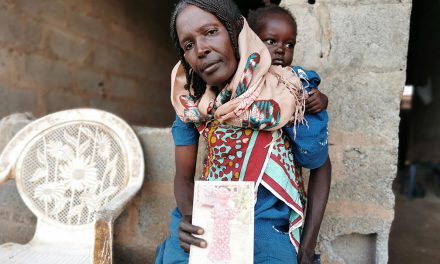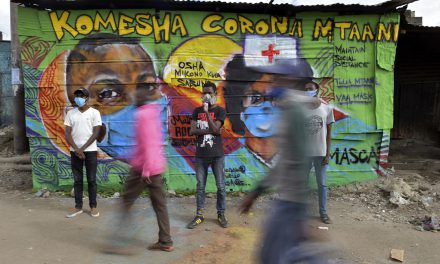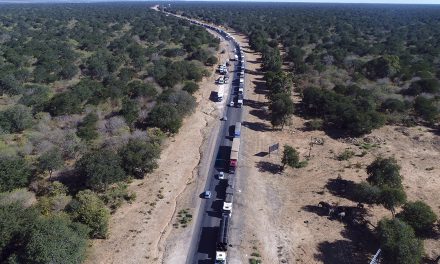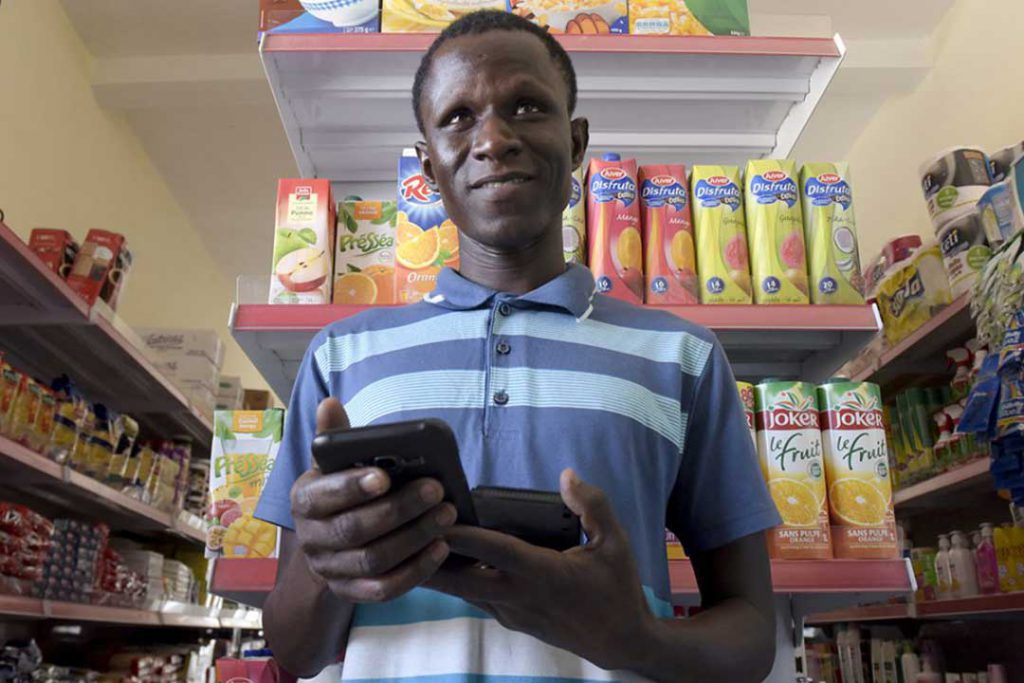
Africa’s opportunity to transform itself into a “cyber-continent”, bypassing capital-intensive legacy infrastructure and leaping straight into the fourth industrial revolution, has been boosted by the unusual digitalisation demands of the global pandemic – but this new world requires its own unique infrastructure, skills, services, investors and entrepreneurs.Digitalisation’s strongest suit is, as noted by Dr Vera Songwe, UN Under-Secretary-General and chief of the body’s Economic Commission for Africa, driven by the continent’s dramatic embrace of mobile technology, with more than 80% of its population having a mobile phone subscription.
Mobile-savvy African youth are the core demographic driving digitalisation – almost 60% are under 25 and 50% under 19 – especially as smartphones offer them their primary, and often only, point of internet access. As mobile usage globally soared by more over 50% during the 12 months prior to September 2020, sub-Saharan Africa was in the vanguard, the industry body GMSA’s 2021 report states. June’s Ericsson Mobility Report predicts that mobile data usage in Africa will soar by 38% over 2019 to 2025. Mobile penetration is uncontestably leading the charge in digitising the continent: Africa’s number of smartphone connections is forecast to “double from 315 million in 2015 to 636 million in 2022, twice the projected number in North America,”, according to the Harvard Business Review.
Ericsson projects the number of smartphone subscribers in sub-Saharan Africa will hit 760 million in 2025, a 9% compound annual growth rate since 2019, with an additional 1.04 billion ordinary mobile phone connections. Moving money by mobile phone has become a distinctly African phenomenon: “Africa already has 122 million active users of mobile financial services,” the Review stated. Remarkably, this represents 60% of the world total. And yet other key components of e-commerce are missing. For instance, almost half a billion Africans have broadband mobile coverage, but do not access it; while Ericsson predicts that Africa will lag behind all other continents in the adoption of 5G (3G will remain dominant in 2026), and internet data is still significantly slower and more expensive in Africa than elsewhere.
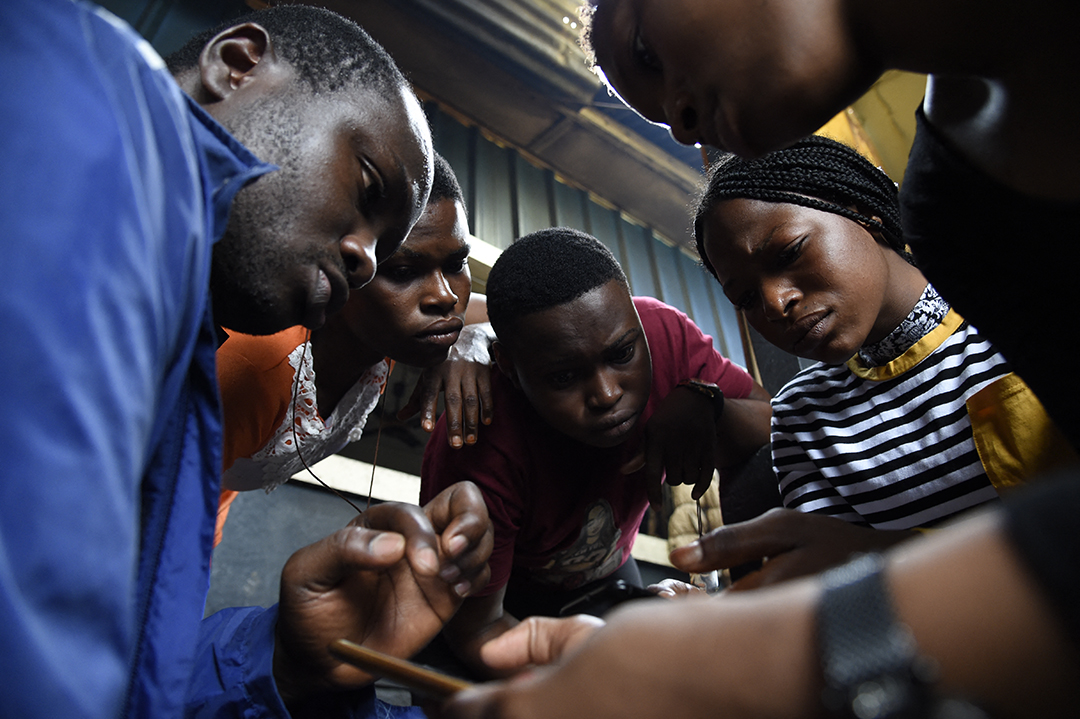
A representative of Code for Africa, John Eromosele (left) teaches volunteers how to use the designated computer application to fast-track digital mapping and referencing in the Makoko settlement in Lagos, Nigeria, 2019. Photo: Utomi Ekpei
When it comes to e-commerce, Sacha Poignonnec, the joint-CEO of online marketplace Jumia, which is one of only four African “unicorn start-ups” valued at over $1 billion, warned in an interview run in Harvard Business Review in 2019 that online sales in Africa stood at less than 1% of total retail sales, compared to close to 25% in China (7% in India). Although he was optimistic African retail would rapidly move online, perhaps hitting 15% in 10 years, the very paucity of formal retail outlets in Africa – 60,000 people per store, compared to 400 people per store in the US – means there are few African-originated goods and services to sell online.
Ericsson states: “The net addition of mobile subscriptions was quite low during Q1 2021, at 59 million. This is likely due to the pandemic and associated lockdown restrictions.” And yet it noted that in that quarter, more than 20% of the global net additions were recorded in Africa, with South Africa at more than two million, having the third-highest numbers in the world after India (topping 26 million) and China (six million).The three developing regions are often compared as they have similar-sized potential markets: China with 1.44 billion people, India with 1.39 billion, and Africa 1.37 billion.
Yet mobile penetration and e-commerce are not standalones in constructing the ecosystem of a digital society and economy. Other elements are required to bridge the digital divide, in particular investment in the knowledge economy via a strong focus on science, technology, engineering, and mathematics (STEM) education, and investment in tech start-ups. Certain elements of bridging the digital divide have already become a reality, particularly in remote services and e-learning. A great example of remote services is Rwanda’s investment from 2016 in Zipline-UPS cargo drones, today flying medical samples between 25 drone ports as a far more cost-effective health intervention than using vehicles on its hilly roads. Such headline-harvesting innovations are, however, very dependent on visionary African leadership and tech-savvy legislation, both often in short supply.
By 2009, South Africa was ready to activate a full medical drone service, but the aviation authorities failed to keep pace and when they finally issued their first drone regulations in 2015, they effectively outlawed medical and other cargo drones. Similar regulatory delays have adversely affected, for example, the enabling of the mobile money business in Nigeria.But some states not normally known as digital players have performed remarkably well under COVID-19.
Acha Leke, chairperson of McKinsey Africa, which consults to governments on digital transformation, commended Togo to Africa in Fact. “They had very few social protection programmes in the country, and in two weeks they built this amazing programme – all digital – that provided a social safety net to those most in need – more money to women than men – and were able to reach a ton of the population very, very quickly. So, it’s clear that this is a trend that’s here to stay.” COVID-19 disruptions to education on the continent have also focused attention on the advantages of e-learning. A new generation of continental institutions has sprung up in recent years, to groom the necessary thought leaders to flesh out the digital ecosystem. One of them that has grabbed the digitalisation bull by the horns is the African Leadership University (ALU), founded in 2015 by Stanford-graduated Ghanaian entrepreneur Fred Swaniker.
The ALU, which now has offices in Mauritius, Rwanda, and Kenya – three countries actively creating high-tech hubs – was in 2019 rated one of the world’s 50 most innovative companies by US business magazine Fast Company. Key to its approach is that its students engage global expertise via virtual campuses – and that they pursue multi-disciplinary “missions” aligned to real-world challenges rather than hidebound degrees. With only six million university slots available each year for 50 million matriculants, Leke says Africa needs to build 20 to 30 Harvards each year – a clear impossibility. So digital campuses that taught digital skills have helped close the gap – and could make Africa the “outsourcing basket of the world”, with a data-scientist pool, who stay in Africa rather than working abroad, available to multinationals at a fraction of western fees for such services. The New York-based software start-up Andela currently outsources African tech-teams on this basis.
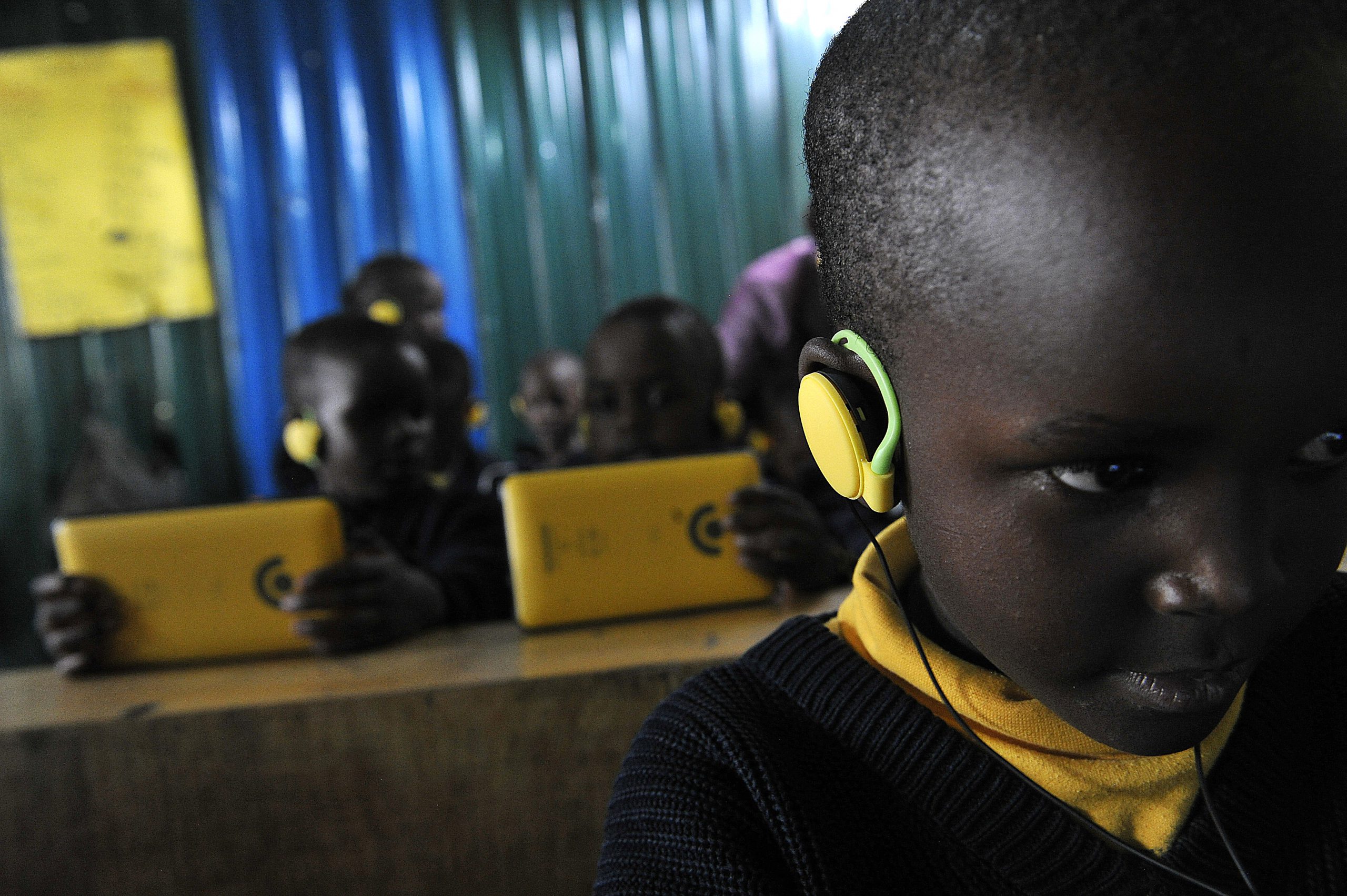
Pupils at Light House Grace academy use the Kio tablet created by the local technology company BRCK Education during a class sesssion in Kawangware, Nairobi. Photo: Simon Maina/AFP
Meanwhile, Egypt made use of the pandemic to entrench its focus on STEM education by extending access to 22-million students to the Egyptian Knowledge Bank, which boasts considerable multimedia content plus full textbooks in support of lessons – and it all can be accessed by computer or mobile phone at no cost. Countries as diverse as Côte d’Ivoire, Kenya, Liberia, Nigeria, South Sudan, and Tunisia have accelerated a shift to e-learning via the internet and SMS, with data fees usually waived and often in conjunction with radio and TV learning channels, to navigate the “new normal”. Yet access remains impossible in many regions, while Africa’s higher education enrolment rate is half that of India’s, and four out of five students in sub-Saharan Africa have no internet access.
Innovation can also prove vulnerable to political instability, as demonstrated when Kenya’s progressive May 2013 drone licensing laws, implemented three years ahead of those in the US, were suspended in February 2015 because of fears that terror groups like Al-Shabaab would make darker use of cargo drones. But regional integration on the continent will reduce such transnational risks in many areas as it increases average incomes: the World Bank predicts that the African Continental Free Trade Area (ACFTA), activated in January, could lift “30 million Africans out of extreme poverty and boost the incomes of nearly 68 million others who live on less than $5.50 a day”, and boost “Africa’s income by $450 billion by 2035 (a gain of 7% ).”
Leke’s 2018 book, titled Africa’s Business Revolution, tracked this upward mobility: “We estimate that private consumption in Africa rose from $860 billion in 2008 to $1.4 trillion in 2015 – significantly higher than that of India, which has a similar population size. We forecast that it could reach $2.1 trillion by 2025.” This increase in urbanised wealth is predicted to uplift women at a faster rate than men, which is important given the sub-Saharan gender gap in mobile internet access of 37%, a figure largely unchanged from 2017, says the GMSA report. Leke told Africa in Fact that “companies that were more digitally advanced fared better through the COVID-19 crisis… we look at some of the telecom players, we look at some of the e-commerce players as well.” ACFTA’s role, he said, was to implement digital-enabling regulations and to harmonise them transnationally.
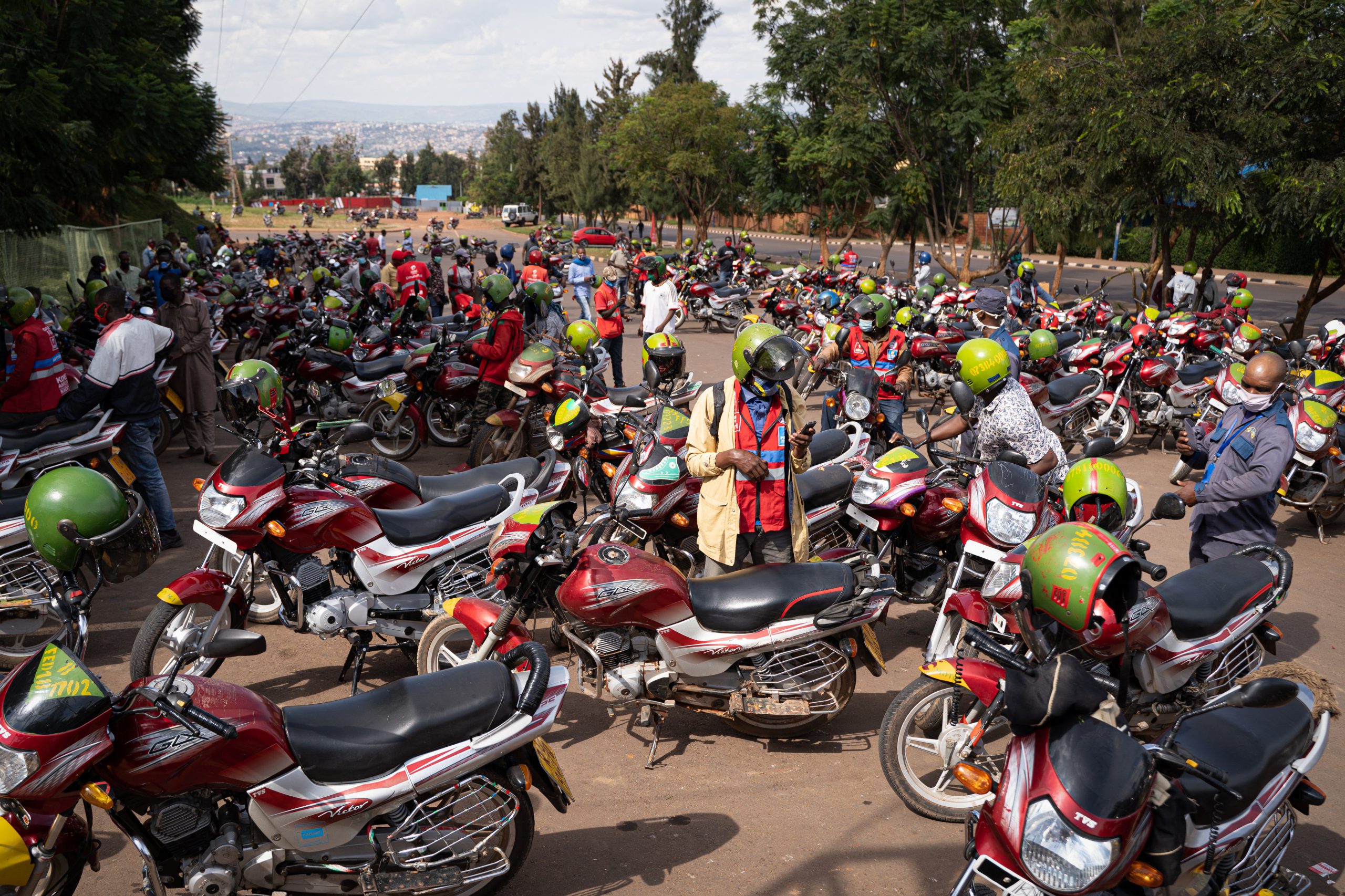
Motorbike taxi drivers receiving a GPS cashless payment device from the government in Kigali, Rwanda, 2020. Photo: Simon Wohlfarht /AFP
Ironically, it was the funding and logistical challenges of combating the pandemic that had compelled Africa to speak as one voice, go digital, and cut red tape in order to scale up its response. Although the viral crisis disrupted foreign direct investment in Africa, with the UN marking a 16% decline from $47 billion in 2019 to $40 billion in 2020, venture capitalists rebooted the tech start-up sector this year, with $940 million raised in the first six months alone, African Business reported on 1 July. Among the beneficiaries were Nairobi-founded agro-analytics app Gro Intelligence, Nigeria’s first mobile only bank, Kuda, Egyptian mobile wallet startup Paymob, Kenyan human blood supply-chain Damu-Sasa, and Angolan crowd-funder Deya. Grounded in innovative STEM education and accessible internet, these start-ups are forming the core of Africa’s transition to digital.
Michael Schmidt is a Johannesburg-based investigative journalist who hasworked in 49 countries on six continents. His main focus areas as an Africa correspondent for leading mainstream journals are emerging and high-end technologies, political developments, conflict resolution and transitional justice, and on the continent’s maritime and littoral spaces.


